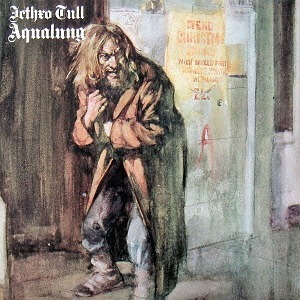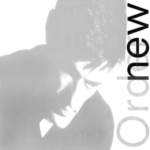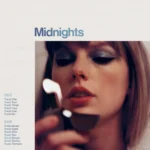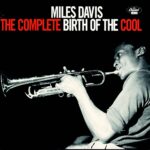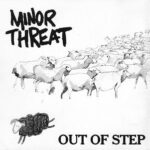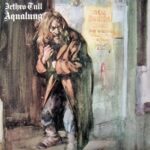 “Jethro Tull – Aqualung” is a landmark album that solidified the band’s status as one of the most innovative and influential progressive rock acts of the 1970s. Released in 1971, the album showcases Jethro Tull’s unique blend of rock, folk, and classical music, coupled with thought-provoking lyrics and Ian Anderson’s distinct flute playing.
“Jethro Tull – Aqualung” is a landmark album that solidified the band’s status as one of the most innovative and influential progressive rock acts of the 1970s. Released in 1971, the album showcases Jethro Tull’s unique blend of rock, folk, and classical music, coupled with thought-provoking lyrics and Ian Anderson’s distinct flute playing.
The album opens with the powerful and iconic title track, “Aqualung.” The song’s heavy guitar riffs, dynamic shifts in tempo, and Anderson’s captivating vocals set the tone for the album. It tells the story of a marginalized and misunderstood character, exploring themes of religion, social inequality, and the darker side of human nature. The track’s complex arrangements and intricate instrumentation create a rich and immersive listening experience.
One of the standout moments on the album is the hauntingly beautiful “Wond’ring Aloud.” The track showcases Jethro Tull’s folk influences, with acoustic guitar, flute, and gentle vocals creating a delicate and introspective atmosphere. It’s a moment of respite amidst the album’s more intense and progressive rock tracks, demonstrating the band’s ability to weave different moods and styles together seamlessly.
Another notable track on the album is “Locomotive Breath.” The song features a driving rhythm, infectious guitar riffs, and Anderson’s energetic vocals. It’s a powerful and catchy rock anthem that tackles themes of societal conformity and the pressures of modern life. The track’s memorable melodies and hard-hitting instrumentation make it a fan favorite and a live staple for the band.
Furthermore, the album includes the epic and progressive “My God.” This track delves into religious themes and critiques organized religion, with Anderson’s lyrics and vocals displaying a mix of skepticism, anger, and contemplation. The song’s complex musical arrangements and Anderson’s virtuosic flute playing showcase the band’s progressive rock prowess.
Additionally, “Cross-Eyed Mary” stands out as a dynamic and energetic track with a memorable guitar riff and Anderson’s spirited vocals. The song’s rebellious spirit and biting social commentary make it a standout moment on the album.
The album’s closing track, “Wind-Up,” is a reflective and introspective piece. It features Anderson’s poignant lyrics and heartfelt vocals, accompanied by beautiful acoustic guitar and flute melodies. The track provides a fitting conclusion to the album, leaving the listener with a sense of contemplation and reflection.
Overall, “Jethro Tull – Aqualung” is a groundbreaking album that showcases the band’s musical virtuosity, diverse influences, and thought-provoking lyricism. The album’s blend of rock, folk, and classical elements, coupled with Ian Anderson’s unique flute playing, creates a distinct and captivating sound. “Aqualung” remains a classic in the progressive rock genre, showcasing Jethro Tull’s ability to push boundaries and create music that is both intellectually stimulating and musically compelling.
This post has already been read 307 times!
